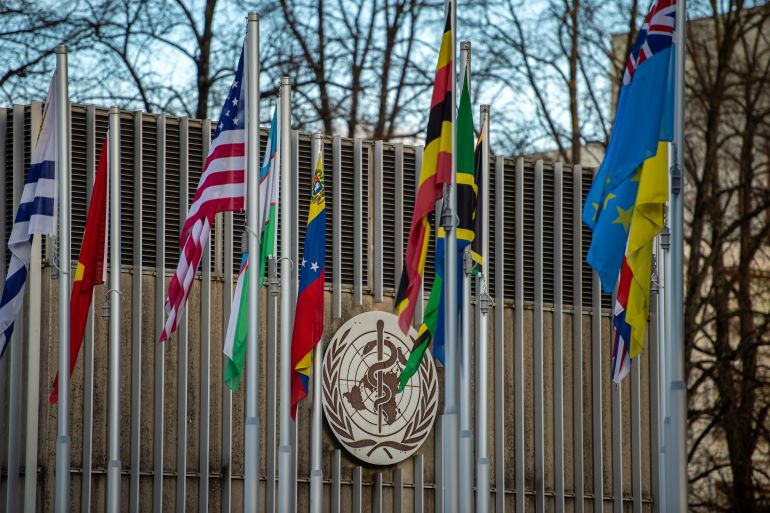Countries reach landmark deal on tackling future pandemics, WHO says
WHO Director-General Tedros Adhanom Ghebreyesus says draft agreement shows multilateralism is ‘alive and well’.

Published On 16 Apr 202516 Apr 2025
The members of the World Health Organization (WHO) have reached a landmark agreement on how to respond to future pandemics after more than three years of negotiations, the global health body has said.
The draft agreement, drawn up after more than 13 formal rounds of negotiations, will be presented for consideration at the World Health Assembly in May, the WHO said on Wednesday.
Recommended Stories
list of 4 itemsend of list
WHO Director-General Tedros Adhanom Ghebreyesus said that member states had made history by demonstrating that multilateralism is “alive and well” and that nations can “still work together to find common ground”.
“We look forward to the World Health Assembly’s consideration of the agreement and – we hope – its adoption,” Tedros said.
The WHO has been working on an agreement since 2021, when member states called for a plan to coordinate the global response to COVID-19 and better respond to the next health crisis.
The United States was not involved in the final rounds of talks, after US President Donald Trump in February issued an executive order cancelling US membership of the WHO.
Advertisement
Member states previously failed to reach a deal by a May 2024 deadline amid disagreements over intellectual property and access to vaccines.
The agreement reached on Wednesday includes commitments to enhance technology and knowledge-sharing, mobilise a multidisciplinary global health emergency workforce and establish a “pathogen access and benefit sharing system”, among other provisions.
South Africa’s Precious Matsoso, one of six ambassadors who helped lead the negotiations, said the agreement would “increase equity” and “protect future generations from the suffering and losses we suffered during the COVID-19 pandemic”.
“The negotiations, at times, have been difficult and protracted. But this monumental effort has been sustained by the shared understanding that viruses do not respect borders, that no one is safe from pandemics until everyone is safe, and that collective health security is an aspiration we deeply believe in and want to strengthen,” Matsoso said.
